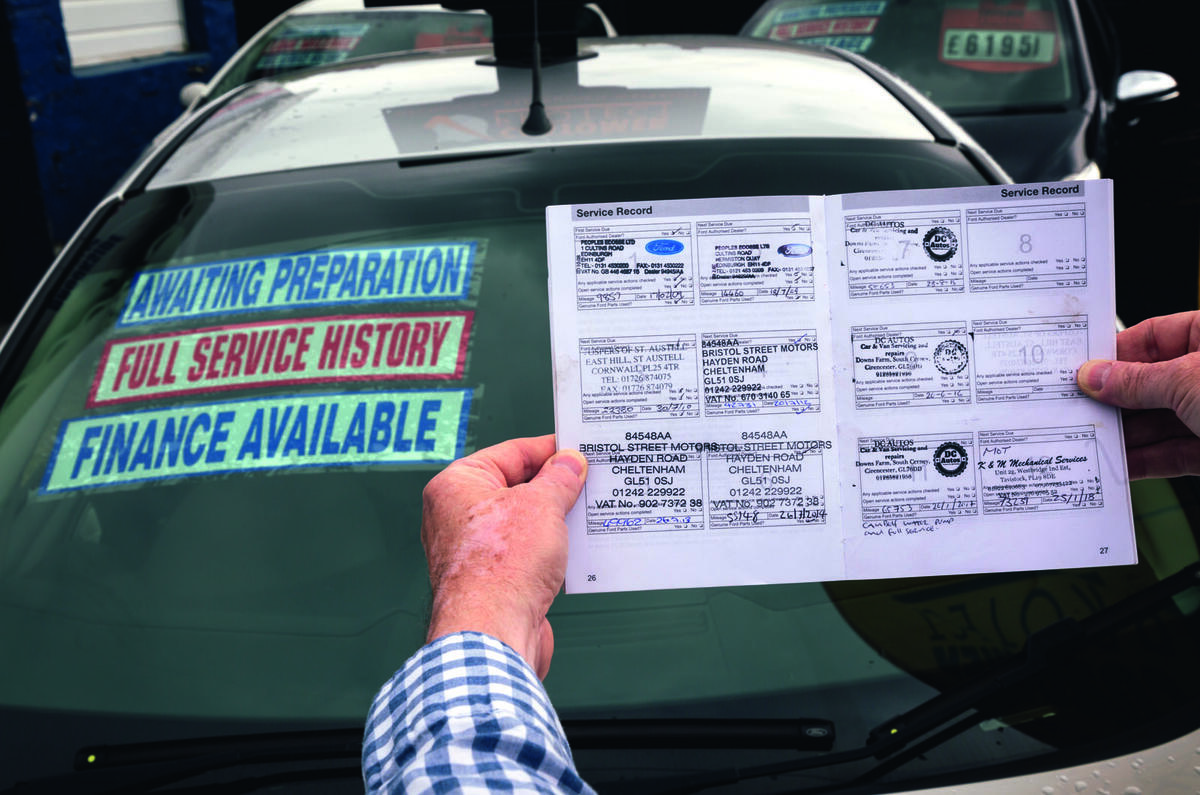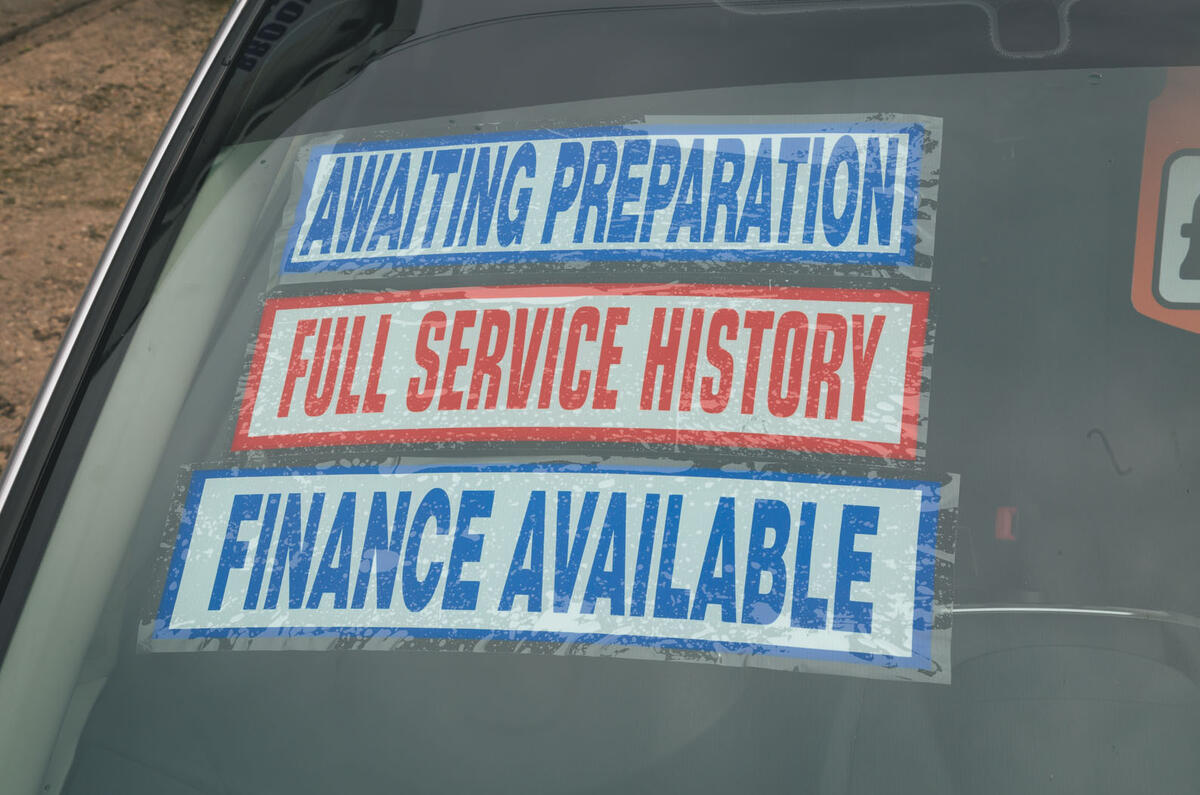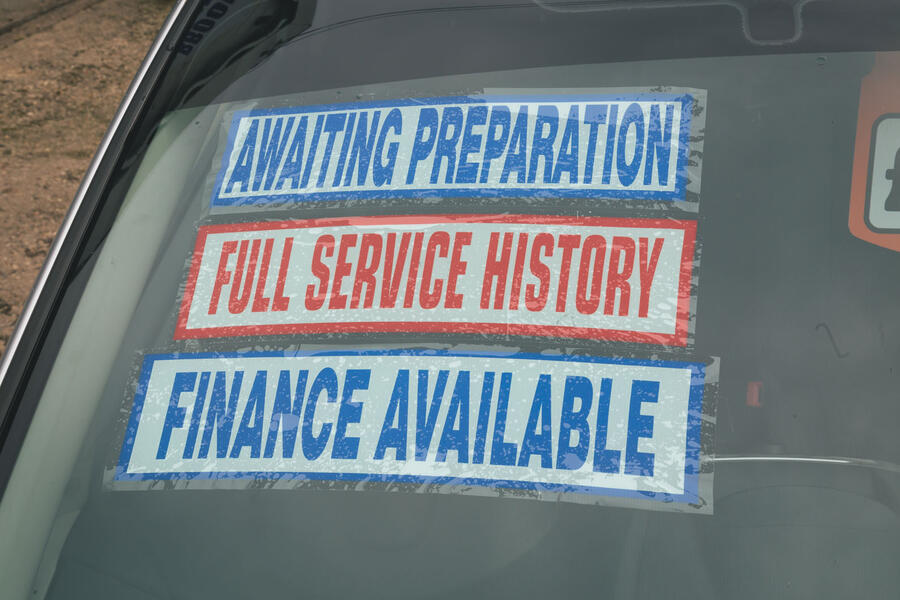To discover how lightly a full service history is treated, I visited a used car dealer and a franchise dealer in search of a couple of used cars out of warranty. I hoped they’d have poor service histories and wondered how the sales staff would handle the situation.
At the used car dealer, I quickly identified my target motor: a 2011- reg Audi A3 Sportback 2.0 TDI S line with 135,000 miles, priced at £4395. The salesman produced its service book, which showed only four services had been carried out: one at 21,000 miles in 2012, another at 44,000 miles at the end of the same year and a third in 2013 at 67,000 miles, all by Audi dealers, and then nothing until early 2019 when, at 130,000 miles, it was serviced by an independent garage.
Unfazed by this revelation, the salesman said he had the previous owner’s word that the car had been serviced regularly during the intervening six years and 63,000 miles. So that was all right then…
I left, pondering the meaning of service history. The Audi had some but by no means could it be described as full. In any case, I wondered, what is full service history? Is it an unbroken line of services performed every year or 12,000 miles, or at the manufacturer’s recommended intervals? Is it full only when all the minor and major services have been carried out, in addition to other periodic work? If that was the case, you’d have to scrutinise all the workshop invoices to find out exactly what was done. Amazingly, some dealers do, which is why they put a higher value on full invoice history as distinct from full service history.
On that point, a friend recently had his 2016-reg Volkswagen Scirocco TDI, which had done 33,000 miles, serviced at a VW dealership. It was due a major service, but because he’s planning to sell it in February 2020, he opted for a minor. In doing so, his vehicle missed, among other things, a change of air, fuel and pollen filters, and a thorough, wheels-off brake check.
Not that the car’s next owner will know. They will see from the service book that the Scirocco has a full service history, yet on one occasion, it had a minor service when it should have had a major.
Webuyanycar.com is one company that takes service history rather more seriously. It defines a full one as conforming to the manufacturer’s schedule. It also advises that car buyers find out what service the car is due to have next since, if it’s a major, for example, it could be expensive.

From the dealer with the Audi A3, I popped into a franchise dealer, a Renault agent. My attention was caught by a Captur Dynamique S Nav TCe, a 2015-reg model that had done 35,000 miles and was priced at £8295.















Join the debate
Add your comment
Tick in the box exercise / annual customer headache
In my experience, the main reason for getting a car serviced, i.e. to keep it in good working order, is the last thing on the dealership / garage's mind so it's arguable whether a servicing stamp should carry so much weight.
I've paid ridiculous amounts of money to main dealerships to service my cars (of various makes) in the past to try to make sure the 'best' people are looking after it and to avoid any extra hassle should I need to make a warranty claim in the future. But my cars have come back with a job half done (e.g. missing pollen filter or no spark plug changes even when they were items mentioned on the service schedule) or damage to the car (e.g. scratches after being washed) which they've denied - thus costing me more money when I've already had to pay far too much for the service anyway.
Taking the car to Halfords to be serviced instead, who quoted me £160 less than my main dealer and state they use genuine manufacturer parts so wouldn't invalidate my warranty, just ended up in more hassle - firstly they cross-threaded the sump plug so it leaked oil over my drive and needed me to take it back for a new plug / oil refill, then it caused confusion in the service book regarding the stamp for free annual 'safety checks' usually performed by a main dealer that they don't perform at Halfords.
I've also lost count of the number of times dealerships forget to stamp a service book, or stamp the wrong page, even when it's been left open on the passenger seat on the correct page! Maybe that's something that's not so important as servicing histories move online, but still an extra worry when selling the car.
So a fully stamped service book should be important and impact a used car's value, but in the real world, and in my own experience, it's not worth the paper it's stamped on.
Regarding oil changes, don't
We kept the car and it's now serviced by an independent we trust.
Admittedly, I didn't pay
I'd had a quick read through them all before buying, but it wasn't 'til I REALLY read through them that I realised they were worthless :
3x cambelt changes, but not a single tensioner or waterpump on any of the receipts.
Every receipt was from a different garage and most were fastfit joints. All this from a guy who lived in relatively small town. You'd expect him to find a trusted mechanic and stick with him.
The thing packed up after 5 months with two knackered injectors. The last receipt I found was for a replacement fuel regulator, with an explanation that this had packed up as it was getting drenched in fuel.
The owner was obviously happy to pay 20 quid for the regulator and an hours labour and sell it on, albeit at a premium as it had a full service history!
I was told the injectors would cost £800+ to do and had a nasty habit of fusing to the head. Needless to say, I scrapped it.
It isn't just the blokes with whitened teeth and shiny suits I don't trust now. It's private sellers and my own judgement.